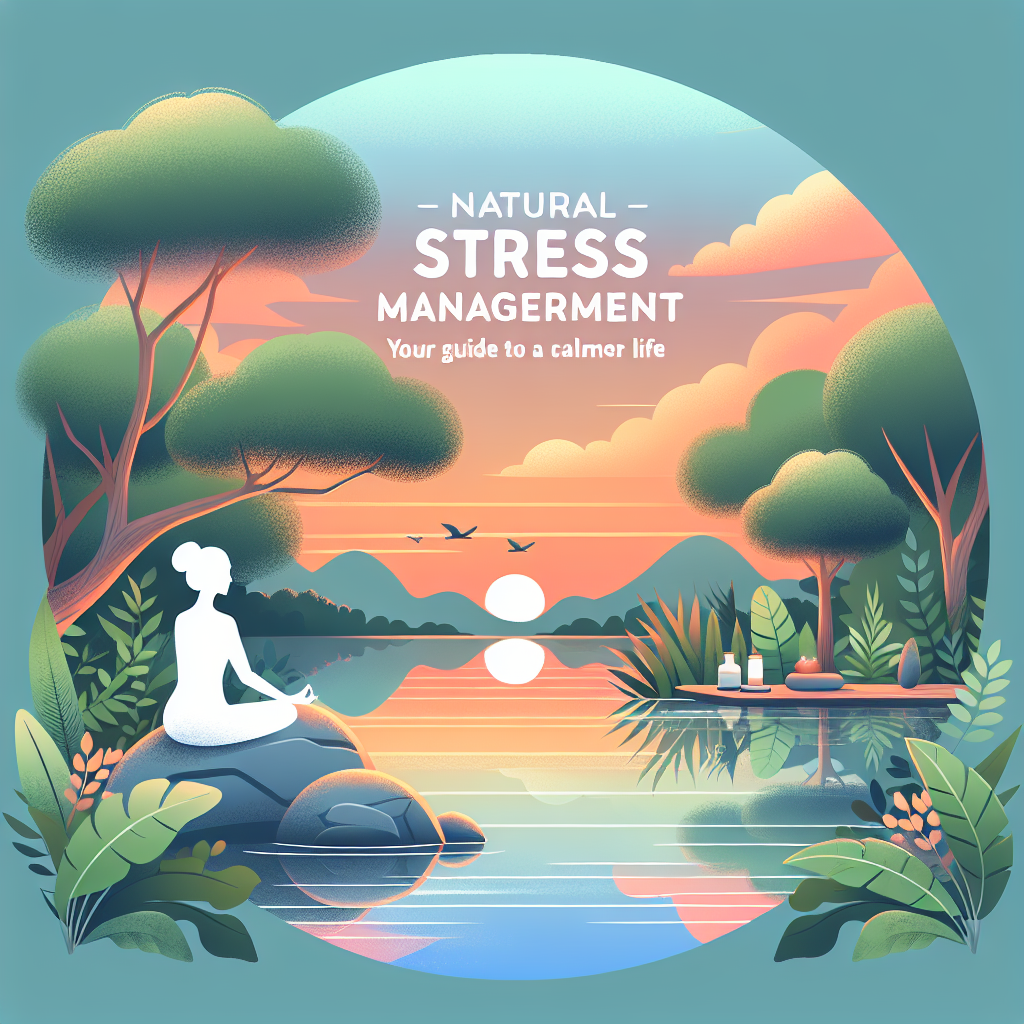
Natural Stress Management: Your Guide to a Calmer Life
Introduction
In today’s fast-paced world, the weight of everyday responsibilities and challenges can often feel overwhelming. From work deadlines and family commitments to societal pressures and personal ambitions, stress has become a constant companion for many. Enter "Natural Stress Management: Your Guide to a Calmer Life." This essential guide aims to equip you with practical, effective strategies that ground you in the present, enhance your mental well-being, and cultivate a serene lifestyle. Whether you’re seeking ways to control anxiety or simply want to implement calming practices in your daily routine, this article will provide valuable insights and empower you towards achieving a calmer existence.
Understanding Stress: A Double-Edged Sword
Stress, in its most basic form, is the body’s response to perceived threats or demands. However, understanding it goes beyond this simplistic definition.
Types of Stress:
- Acute Stress: This short-term stress can be beneficial, pushing you to perform well in crucial moments.
- Chronic Stress: Prolonged stress can lead to adverse health effects, including anxiety, depression, and various physical ailments.
Case Study Analysis: A study published in the American Journal of Psychology found that chronic workplace stress severely impacts workers’ physical and mental health. Employees reporting high stress levels had a significant increase in absenteeism and lower productivity rates.
The Impact of Stress on Health
Understanding how stress affects your health is crucial in appreciating the need for natural stress management strategies. Chronic stress can trigger a cascade of health problems such as:
- Heart Disease: Stress increases cortisol levels, leading to higher blood pressure.
- Digestive Problems: Stress can disrupt your gut’s function, leading to conditions like IBS.
- Mental Health Disorders: Anxiety and depression are heavily related to prolonged stress exposure.
Table 1: Health Issues Linked to Chronic Stress
| Health Issue | Description |
|---|---|
| Heart Disease | Increased risk of hypertension and heart attacks. |
| Digestive Problems | Conditions such as IBS or acid reflux. |
| Mental Health Disorders | Increased likelihood of anxiety and depression. |
| Sleep Disorders | Insomnia or disrupted sleep cycles are common. |
Natural Stress Management Techniques
Natural stress management techniques promote a holistic approach to achieving tranquility. They not only help alleviate stress but can also enhance your overall health.
1. Mindfulness and Meditation
Mindfulness is the practice of focusing on the present moment. Meditation, particularly, has been shown to reduce stress, anxiety, and depression.
Research Insight: A study in Health Psychology Review found that participants who engaged in regular mindfulness meditation reported a significant reduction in stress levels.
Tip: Start with just five minutes a day and gradually increase as your comfort with the practice grows.
2. Physical Activity
Engaging in regular physical activity is one of the most effective natural stress management techniques. Exercise releases endorphins, known as "feel-good" hormones.
Case Study Analysis: In a study conducted by the Journal of Clinical Psychiatry, patients who incorporated physical activities reported a 30% decrease in perceived stress levels.
Recommendation: Find an activity you enjoy—whether it’s hiking, dancing, or yoga—to make it a sustainable part of your routine.
3. Nature Therapy
Spending time in nature has profound effects on reducing stress. Nature provides a sense of peace that can rejuvenate your mind and soul.
Visualization Technique: Imagine yourself walking through a serene forest; feel the fresh air and listen to the rustling leaves—it can drastically change your mental state.
4. Aromatherapy
The use of essential oils can enhance emotional healing. Scents like lavender, chamomile, and sandalwood are well-known for their calming properties.
Practical Application: Using a diffuser or applying diluted essential oils to pressure points can provide immediate stress relief.
Creating a Personal Stress Management Plan
A personalized stress management plan will ensure that you have strategies tailored to your unique life circumstances and stressors.
Step-by-Step Guide
- Identify Stress Triggers: Write down what causes you stress each day.
- Prioritize Self-Care: Dedicate at least one hour a week to activities that nourish your mind and body.
- Integrate Techniques: Incorporate meditation, physical activity, and nature walks into your weekly routine.
- Assess and Adjust: Reflect on what strategies work best and adjust your plan accordingly.
Conclusion
Incorporating natural stress management techniques into your daily life is a journey toward greater mental clarity, emotional resilience, and holistic wellness. As you explore and implement techniques such as mindfulness, physical activity, and nature therapy, you’re not just mitigating stress but also fostering a deeper connection with yourself and the world around you. Remember, "Natural Stress Management: Your Guide to a Calmer Life" is not about eliminating stress entirely; it’s about managing it mindfully and effectively. The path to a calmer life is within your grasp — take that first step today.
FAQs Section
1. What is natural stress management?
Natural stress management refers to techniques and practices that help alleviate stress without relying on pharmaceuticals. These can include mindfulness, physical activity, and lifestyle changes.
2. How long before I see results from these techniques?
Many people may notice reduced stress levels and improved well-being within a few weeks if they consistently practice these techniques.
3. Can diet impact stress levels?
Yes, a healthy diet can significantly influence your stress response. Foods high in omega-3 fatty acids, antioxidants, and vitamins can help reduce stress hormones.
4. What if I don’t have time for a long meditation session?
Start small! Just a few minutes of mindfulness or a short walk in nature can make a significant difference in your mood and stress levels.
5. How do I stay committed to my stress management plan?
Set realistic goals and remind yourself of the benefits. Celebrate small achievements and adjust your plan as needed to ensure it remains enjoyable and effective.
By embracing "Natural Stress Management: Your Guide to a Calmer Life," you open the door to a more serene and fulfilling existence. Start today, and watch as the waves of stress retreat, making way for a more vibrant and peaceful life.

















